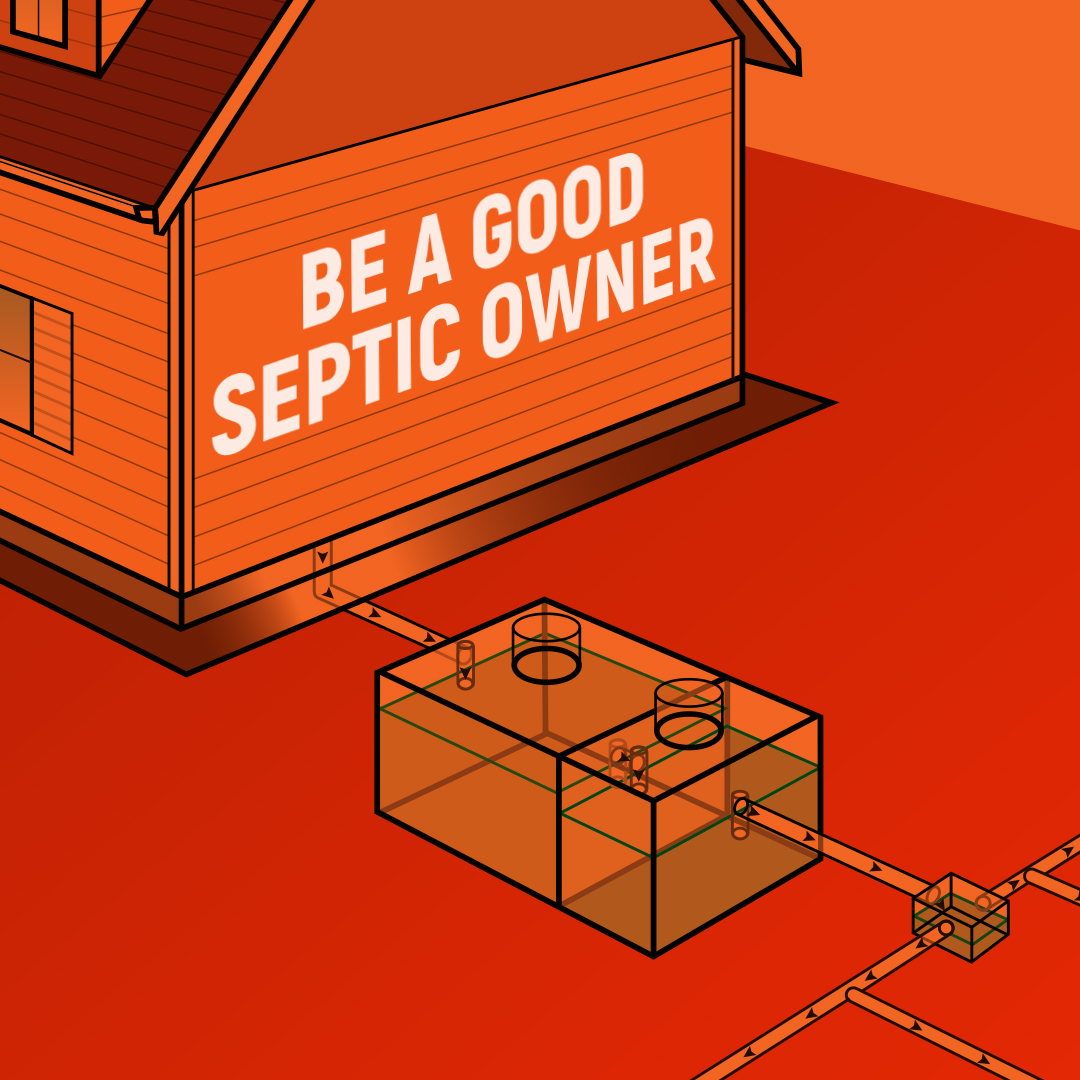Septic Tank Maintenance
 State law requires all septic tank installers and pumpers to have a license from the Alabama Onsite Wastewater Board. Licensed technicians can be found using the Alabama Onsite Wastewater Board Website.
State law requires all septic tank installers and pumpers to have a license from the Alabama Onsite Wastewater Board. Licensed technicians can be found using the Alabama Onsite Wastewater Board Website.
You should contact a licensed technician to clean your septic tank and effluent filter every three to five years. Maintenance will increase the life span of your system, prevent expensive repairs, and protect groundwater from harmful contamination.
Proper maintenance of your septic tank system begins by installing an effluent filter in your septic tank. The filter will warn you when the system needs to be serviced. Failing to maintain your system will cause your system to fail.
Failing septic tank systems can:
- endanger your family’s health;
- pollute the environment;
- reduce your property value
- be expensive to repair.
Signs of Potential System Problems
- Wet spots in the yard
- Slow-draining toilets or drains
- Gurgling sounds in your drains
- Sewage odors
Do’s and Don’ts
- Do - Conserve water to reduce the amount of wastewater that must be treated and disposed of by your system. Doing laundry over several days will put less stress on your system.
- Do - Repair any leaking faucets or toilets. To detect toilet leaks, add several drops of food dye to the toilet tank and see if dye ends up in the bowl.
- Do - Divert roof drainage, downspouts, and other surface water away from your drain field. Excessive water keeps the soil from adequately cleansing the wastewater.
- Do - Install an effluent filter in your tank the next time it is pumped.
- Do - Have your septic tank inspected yearly and pumped regularly by a licensed septic tank contractor. See the chart on our below for suggested pumping frequencies.
- Do - Keep your septic tank cover accessible for inspections and pumpings by installing watertight risers to ground level with secure lids.
- Do - Call your county health department or a licensed septic tank contractor whenever you experience problems with your system, or there are any signs of system failure.
- Do - Keep a detailed record of repairs, pumpings, inspections, and other maintenance activities. Pass these on to the next homeowner.
- Don’t - Flush or pour: coffee grounds, disposable diapers, wipes, sanitary napkins, medication, cigarette butts, fats, grease, oil, paints, thinners, kitchen scraps, dental floss, kitty litter, tampons, condoms, paper towels, varnishes, waste oils, or pesticides.
- Don’t - Drive over your drain field or compact the soil in any way.
- Don’t - Dig in your drain field or build anything over it, and don’t cover it with a hard surface such as concrete or asphalt. Also, don’t install underground utilities or sprinkler systems nearby.
- Don’t - Plant anything over or near the drain field except grass. Roots from nearby trees and shrubs may clog and damage the drain lines.
- Don’t - Install a swimming pool near your system.
- Don’t - Use a garbage disposal, or at least limit its usage. Disposals increase solids in your tank by about 50%, so you have to pump your tank more often than normally suggested.
- Don’t - Use your toilet as a trash can or poison your system and the groundwater by pouring harmful chemicals and cleansers down the drain. Harsh chemicals can kill the bacteria that help purify your wastewater.
- Don’t - Waste money on septic tank additives. The bacteria needed to treat wastewater are naturally present in sewage. Additives can re-suspend solids causing your drain field to clog. Additives do not eliminate the need for routine pumping of your tank.
- Don’t - Allow backwash from home water softeners to enter the septic tank system.
- Don't - Enter a septic tank. Toxic gases from the tank can kill. If your system develops problems, get advice from your county health department or a licensed septic tank contractor.
View our Homeowner’s Guide and Record-Keeping Folder to keep track of your maintenance and for more information on maintaining your septic tank.
Page last updated: September 24, 2025




